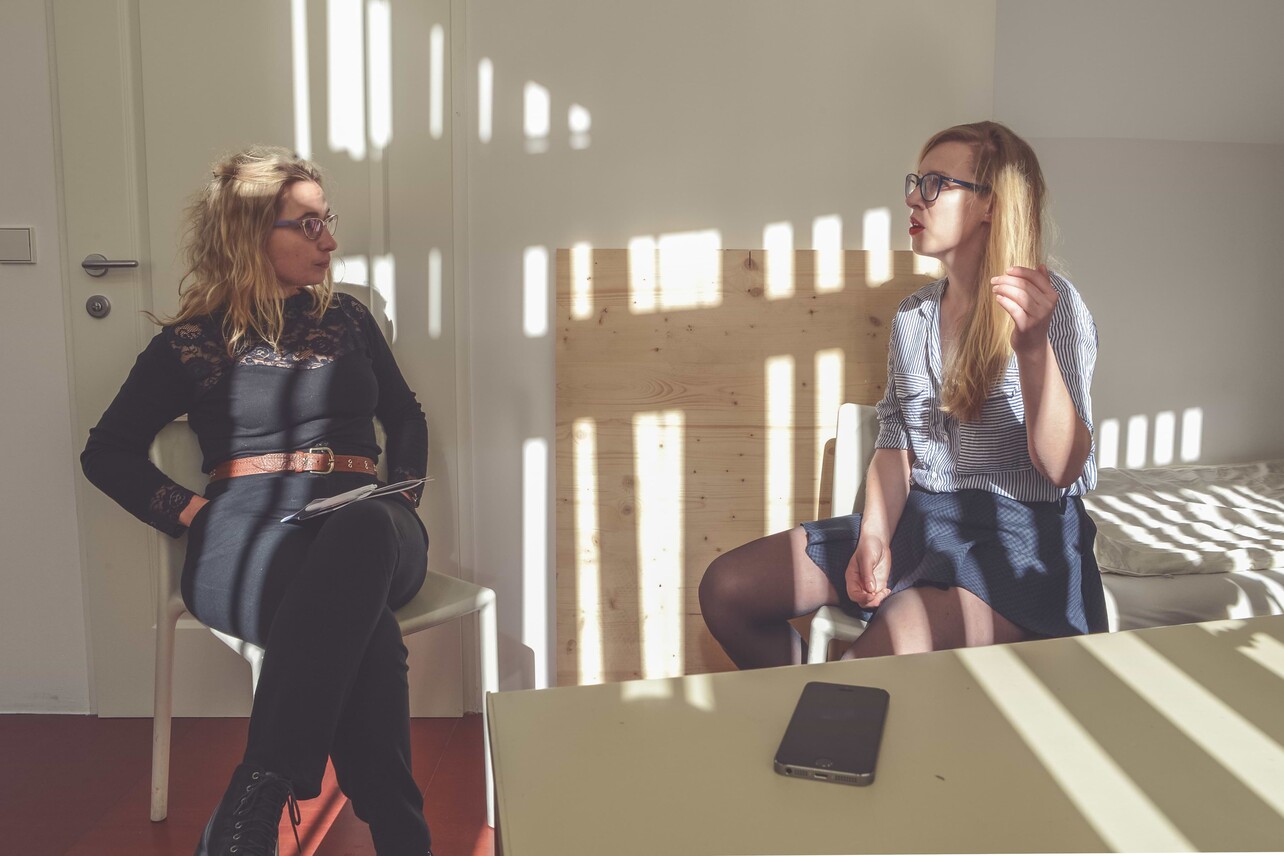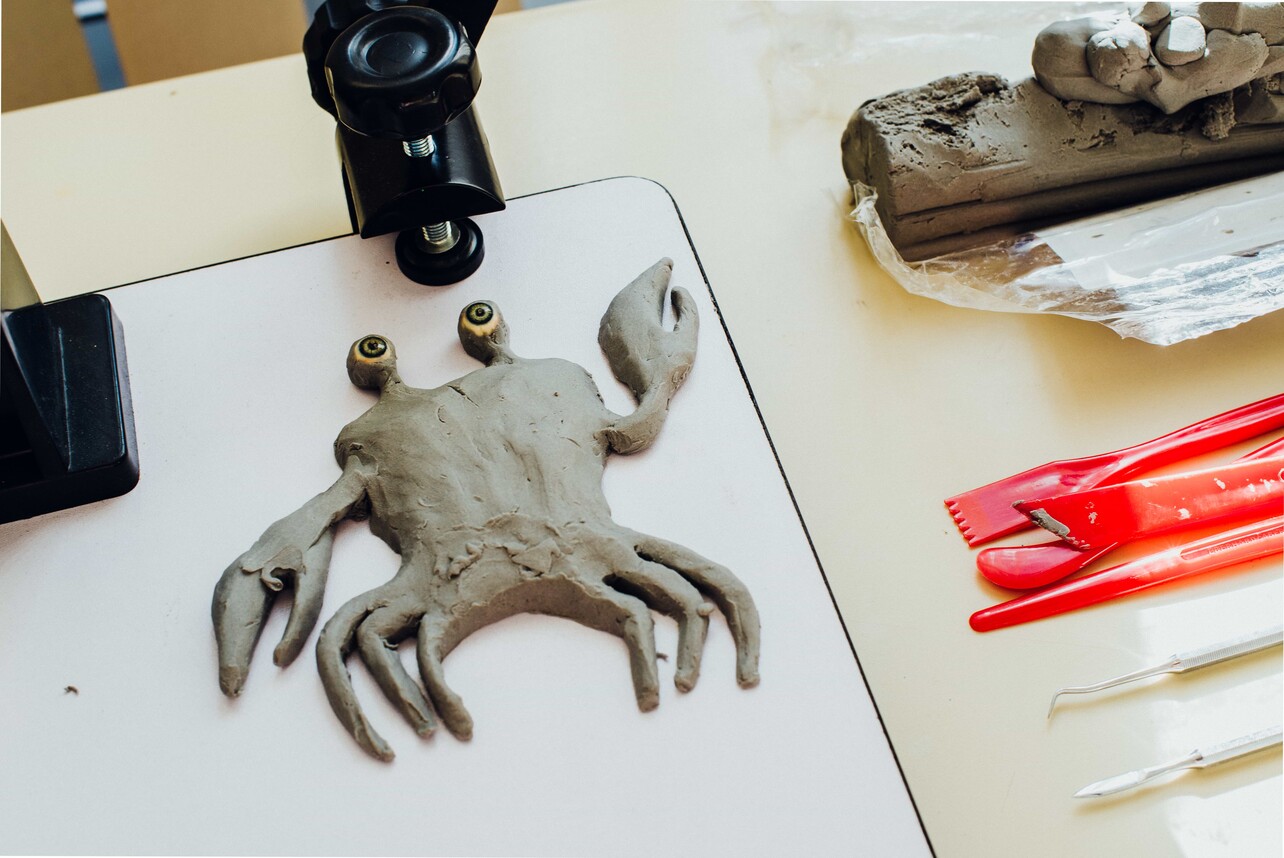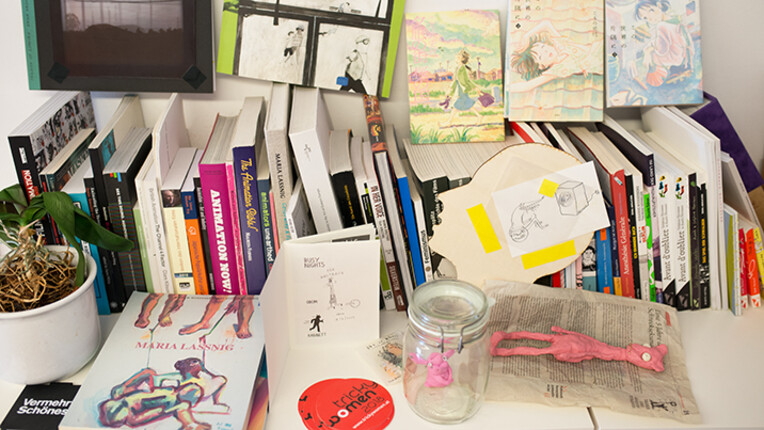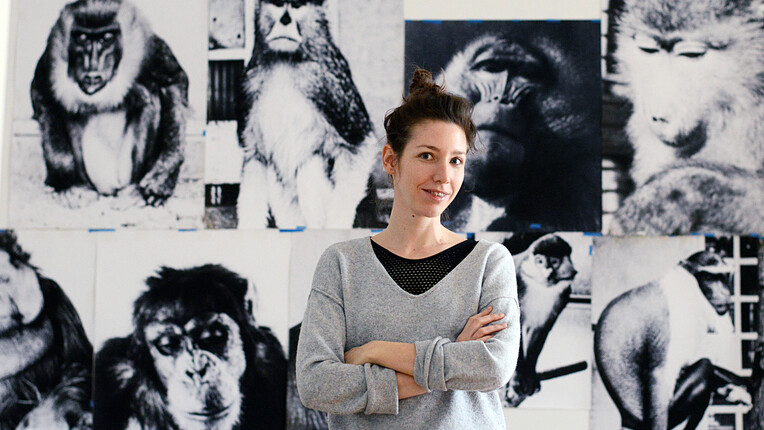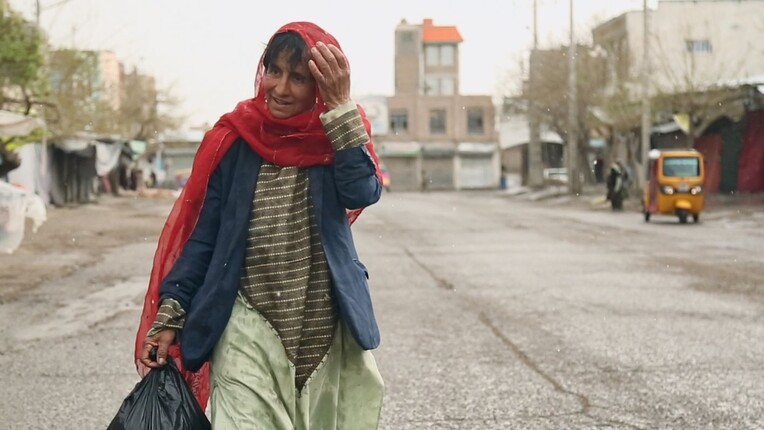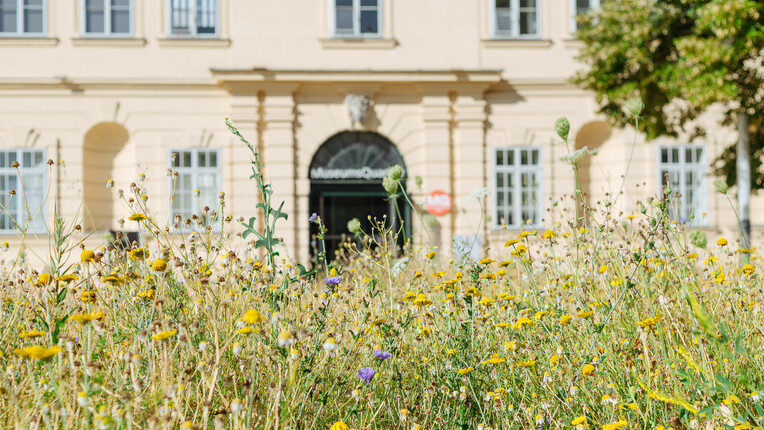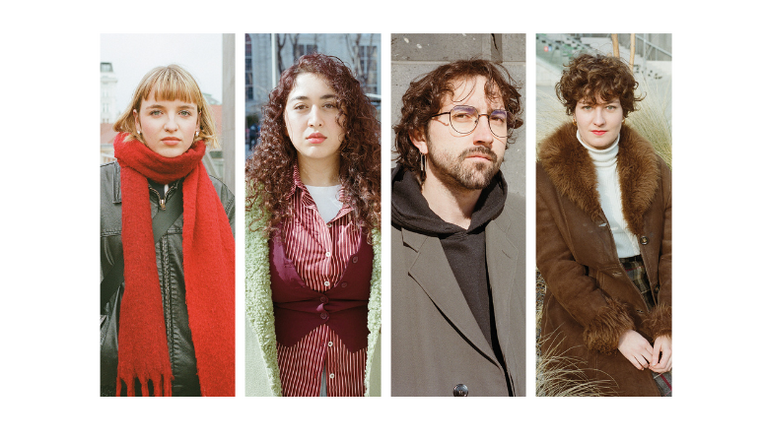
Kasia Nalewajka: On Krakens and Deep Emotions
KASIA NALEWAJKA is a film director, writer and animator based in London.
Her 9-minute animated short Pineapple Calamari won the „3 month residency at Q21/MQ“ award at last year’s Tricky Women Animation Film Festival. We met Kasia for a quick chat about Krakens and deep emotions.
Kasia, why tell stories?
I want to tell stories because I want to share how I feel about certain things that happened in my life. I want others to understand my feelings. I would like to share my experiences with others so we can have these experiences together.
Why do you use the medium of animated film to share your feelings?
It’s a medium that is good for people who are introverted and quiet. Unlike live-action movie-making, where you have a crowd of people fighting for dominance, you can work at a slower pace and you have time to think things over.
Answer
With your claymation PINEAPPLE CALAMARI you won the residency at Q21 at the Tricky Women Animation Film Festival last year.
I attended the screening back then and I noticed the audience was laughing, but moved by the story at the same time.
From the very beginning me and the producer, Daniel Negret, wanted to make a film that was both: sad and happy, because this experience is closest to life.
Two women share an idyllic life in the countryside. They have their daily routine: cooking, drinks, piano playing, horse riding. Then tragedy strikes and changes everything. How do we deal with our daily routine when someone we love is not here anymore?
When someone you are really attached to leaves your life, for some people, including me, it takes a lot of time to accept. You can just deny it. You don’t react and pretend it didn’t happen. I have an experience of pretending it never happened. I waited for years until I cried. Instead of accepting the change, you tend to build your own reality. I found it interesting to make this denial even bigger and more extreme in a film.
Was it a healing process to do the movie?
It was a rather difficult process. It was harmful for me to make this film. I ended up in a very poor emotional state and had to recover for a long time. I kind of turned into one of the characters of the film. I turned into this other woman who survived. Maybe that was the weirdest experience, that the film came true.
Wow, that sounds tough.
Now it’s easier, especially when you tell me the audience reacted that way during the screening. This is exactly how I wanted the audience to react, it makes me really happy.
Animals play an integral part in your films. What do they mean to you?
I like that they are vulnerable, and usually an animal makes for a nicer character than a person. And concerning real life, well, I did study natural sciences and biology.
Have you seen the movie THE LOBSTER?
I saw it a couple of weeks ago. I love this kind of cinema. I love everything that is absurd.
In the movie the protagonist has to choose an animal into which he would like to be transformed. If you had to be transformed into an animal, which one would that be?
I’m fond of the underwater world so I would choose a sea animal. Maybe a Kraken, the legendary sea monster.
What do you know about Krakens?
I don’t know much except that they’re massive. I had an imaginary Kraken a couple of years ago. Me and my boyfriend used to pretend that we weren't able to take a bath because there was a Kraken occupying the bathtub. That was nice.
The Tricky Women Festival starts on March 2nd in Vienna. How important is it to run a festival dedicated exclusively to films made by women?
I know that in large-scale productions like in Hollywood maybe 7% of the directors are female. All the important review websites and most important awards are run by men.
I know that men have different tastes in films, they like different things. Basically, it is men who decide what's going to be successful. I think it’s good to connect with other women and all sorts of initiatives that fight for a change. It’s great to have this environment of female film makers.
Did you personally have to work harder than your male colleagues to be successful?
I think I just haven't gotten there yet. I’m currently making a film that is funded by the Polish Film Institute. It’s not commercial, it’s not mainstream, it’s not a big budget. I would love to direct a series sometime. But for women it’s very difficult. Maybe it works if you do it as a directing duo, a man and a woman. There must be some sort of lack of trust towards female directors.
I find your interest in the mental states of people and the partly surreal relationship to animals very captivating. How come that people think you’re mad? I’m referring to this statement of yours: „People think I'm mad. I'm not mad. These stories make sense, and some of them are actually true.“
I just hear that quite often. People come to me after screenings and say, „Girl, you’re crazy, your stories are crazy.“ But they are not. Emotionally, they make sense. They are just dressed up differently, show different surfaces than the ones we know from daily life.
Interview: Margit Mössmer
